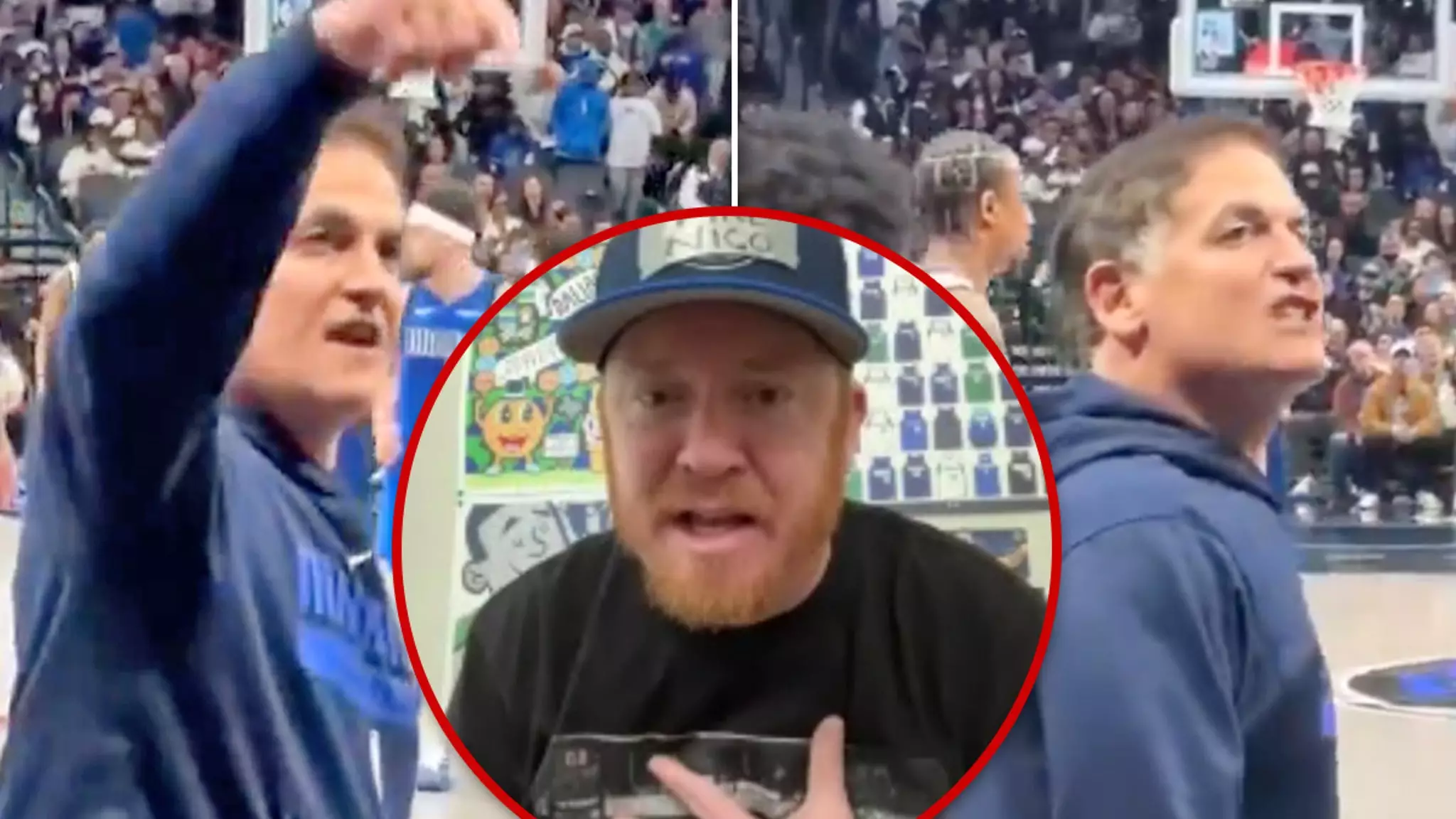A recent incident at the American Airlines Center has raised questions about fan rights and the governance of sports arenas. Chris Taylor, a Dallas Mavericks season ticket holder, found himself embroiled in a confrontation with team owner Mark Cuban during a game against the Sacramento Kings. Taylor attempted to incite a chant against Mavericks’ general manager, Nico Harrison, stemming from his dissatisfaction over a trade that saw Luka Dončić land with the Los Angeles Lakers. This altercation not only saw Taylor removed from the game but also ignited discussions about the appropriate treatment of fans in professional sports settings.
The conflict initiated when Taylor, feeling frustrated by the recent trade decisions, took matters into his own hands by attempting to gather support from fellow fans. Cuban’s intervention was swift; he approached Taylor personally with a request to cease his disruptive behavior. It’s in the fallout of this intervention that the situation escalated, leading security personnel to step in, ultimately ejecting Taylor from the venue. The Dallas Mavericks organization justified the move by citing their NBA Fan Code of Conduct, which emphasizes maintaining a respectful and cooperative atmosphere during games.
What stands out in this scenario is the dynamic between fans and team officials, especially when emotions run high. In such high-stakes environments, it’s not just about the game; it’s also about the interaction between fans and the club management. The ramifications of this incident could potentially cast a long shadow on how team owners and officials approach dissent from their loyal supporters moving forward.
Following the ejection, Taylor did not remain passive. He expressed feelings of victimization, claiming that his rights as a fan had been compromised. According to Taylor, during the confrontation, security personnel gave him an ultimatum that left him feeling threatened: “Do you want to walk out, or get dragged out?” This statement underscores a broader concern about fan treatment and the perceived authority wielded by security staff in such situations. Taylor’s contemplation of legal action poses further inquiries about accountability—can sports teams unilaterally decide what constitutes disruption, and at what cost to the fan’s experience?
Moreover, Taylor has accused Cuban of dishonesty and maintaining a proverbial iron-fist approach towards fan expression. The implications of his statements stretch beyond personal grievance; they highlight a tense relationship between passionate fans and team management, especially in an age where direct communication from fans to team executives is increasingly common, often via social media.
Despite the tumultuous events, Taylor remains optimistic about returning to Mavericks games later this month, reflecting the complexity of fan loyalty—even in the face of adversity. His story serves as a cautionary tale for sports organizations navigating the delicate tightrope of fostering a positive fan environment while managing dissent and maintaining order.
As more fans like Taylor voice their concerns, it is crucial for NBA teams and authorities to reassess how they interact with passionate supporters. For the Mavericks, this incident could be an opportunity for introspection and a re-evaluation of their protocols regarding fan treatment, ultimately contributing to a more respectful and engaging atmosphere in the stadium.

